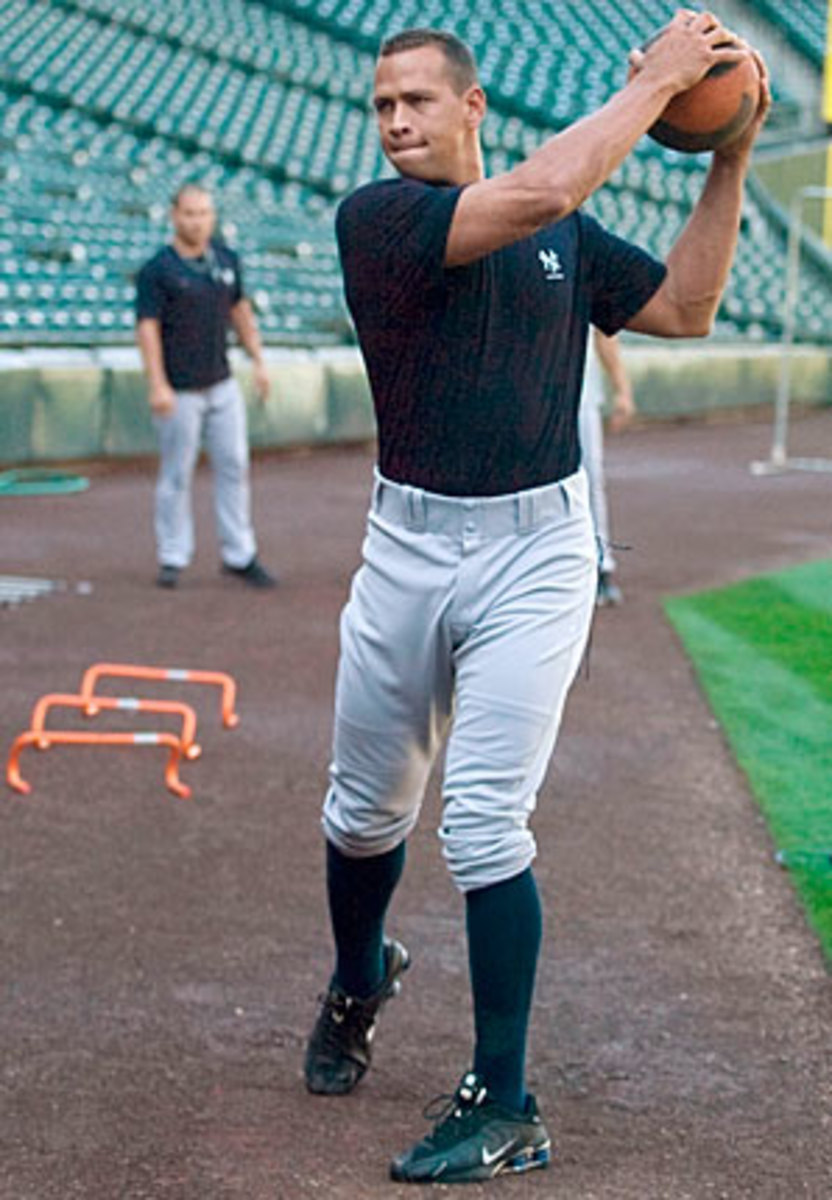
A-Rod injury is latest example of Yankees acting their age
From 2001 through 2007, when he turned 32, Rodriguez played in 98 percent of his team's games, missing an average of two or three per season. But with news that Rodriguez has a problem with his hip, a problem that may be serious enough to require surgery and a lengthy recovery, and on the heels of missing 24 games last year, the asset that is Alex Rodriguez is declining in value. His reliability is diminished. The New York Yankees cannot count on him going to the post every day for the time being.
In a best-case scenario for the Yankees, Rodriguez gets the hip repaired with conservative, non-invasive treatment and misses a few weeks before he comes back as good as new. In the worst-case scenario, the hip problem requires surgery and is something that will require more extensive recovery and ongoing maintenance. No one can yet know the path ahead. What we do know is Rodriguez has a problem with his hip that surfaced last year and now requires medical attention, he turns 34 years old this summer, and has nine seasons remaining on the most expensive contract in baseball history.
"Hip surgeries are not a common thing in baseball," one general manager said. "Who knows, but it could be tough to come back from quickly. There is a lot of torque in this sport, a lot of lateral movement.
"The one chink in the armor of the Yankees is their age. As guys age you wonder about guys starting to get hurt more. They're a great team, don't get me wrong. But they are a little older."
The Yankees have a 37-year-old catcher coming off shoulder surgery (Jorge Posada), a shortstop who turns 35 in June (Derek Jeter), a 39-year-old closer (Mariano Rivera), a 35-year-old outfielder (Johnny Damon), another outfielder who turns 35 in June (Hideki Matsui) and now a 33-year-old third baseman with a problematic hip. None of those position players except Jeter played 150 games last year.
New York may have to explore third-base options to replace Rodriguez, lest they allow a $200 million investment to proceed through about 20 percent of the season with Cody Ransom or Angel Berroa at the position. There is Esteban German if they want him. Or they could sign one of the unwanted free agents, such as Mark Grudzielanek or Ray Durham as stopgaps. Their decision will depend on how Rodriguez responds to conservative treatment and how long he might be out.
Should Rodriguez miss extended time, Mark Teixeira will feel the biggest impact. Historically a slow starter as it is, Teixeira would be missing his most important protection in the lineup and will shoulder an even greater burden of run-producing responsibility -- all the while trying to justify his contract to Yankees fans for the first time.
The Yankees have much money and faith invested in Rodriguez. A future without him, even short term, is grim. In those 24 games he did not start last year, the Yankees went 9-15. (They were 80-58 with him.) They lost the wild card by six games. He is a linchpin of organizational plans now and for nine seasons. Only three third basemen age 33 or older ever managed more than two seasons with at least 150 games: Brooks Robinson, Pete Rose and Mike Schmidt. To win games and sell tickets and sell advertising on their network, the Yankees need Rodriguez to be one of those outliers, to be in the lineup if not every day, pretty darn close to every day. But the hip injury, be it a minor problem or a major issue, is at least a reminder of how fragile plans can be, especially as players age.




